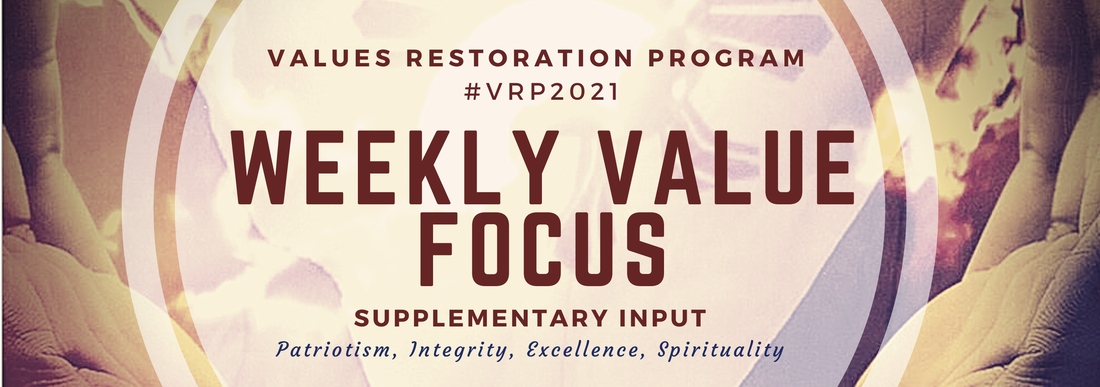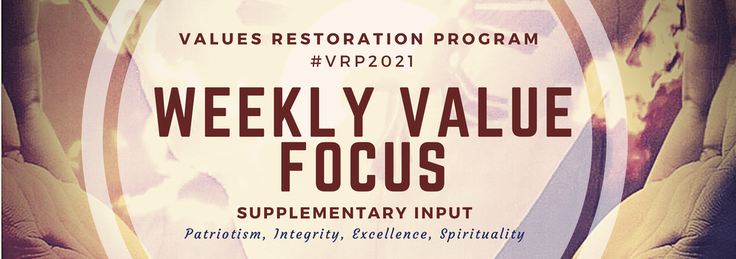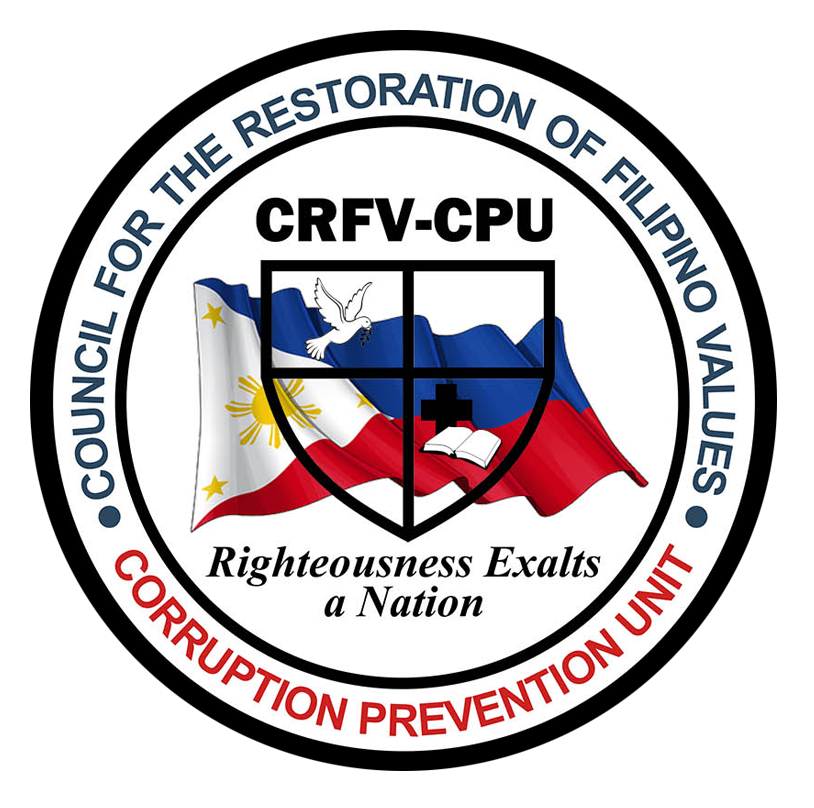|
How do you define justice? Some say it is giving one what is due, but in this dynamic and fast-changing world, does this definition suffice? Shouldn’t justice be not limited only to its legal definition per se but widened enough to offer different perspectives.
Many people associate justice to laws, legal procedures, court hearings and things of similar nature the moment they hear the word. Often, it is associated with a magistrate, a lawyer and a litigant. However, only a few associates it with daily activities in life like treating neighbors fairly or paying one what is due to him or distributing things equally. Justice, by virtue of its definition, pertains to just behavior or treatment, aside from its legal definition. This is often forgotten though. In this definition, it is clear that we have to be just in the way we treat other people in whatever we do, big or small. As such, we have to be mindful of how we look at others since it can greatly affect the way we treat them. Often, the difference in treatment stems from an unequal perception towards a person or a group. Say a person who favors one group tends to exclude the other or one who does not look favorably at a person tends to maintain a particular thought against that person or group. The Word says, “You shall do no injustice in judgment; you shall not be partial to the poor nor defer to the great, but you are to judge your neighbor fairly.” Yet in applying this, we fail in the most basic things like simply treating the clients who come seeking for help in our offices. Simply treating one who is dressed properly as against one who came in with shorts and slippers is an act that does not exhibit justice. Simply delaying one for any reason other than those legal, exhibits unequal treatment. During this time of pandemic, how have we been living? Have we been just in terms of treating people? In distributing goods or rendering services to clients, have we, in one way or another, exhibited injustice? In entertaining things brought before our office, have we been practicing justice? In terms of social justice, have we made sure that those whose who are under us been receiving equal opportunities, equal workload and equal benefits? In our neighborhood, have we been partial or equal in terms of treating them? What parameters have we used in viewing people? Have we equated their worth in terms of their possession, status and the like? For people who are in power, have we been favoring one person against the others? For what reason? Let’s learn to treat everyone fairly, for whatever MEASURE we use to MEASURE another shall be used to MEASURE us. Whatever we sow, we shall reap. (JBB, CRFV)
2 Comments
We live and move in a democratic country where freedom is exercised. And sadly, this freedom is being affected by the ongoing COVID 19 pandemic. Restrictions and limitations on most aspects of our daily life is being implemented such as travel bans, quarantine protocols, lockdown, gathering restrictions, and more. We find ourselves struggle and strive to regain the freedom from all of these. This current pandemic has indeed altered our exercise and perhaps our perception about freedom.
It is a privilege for us to express what and how we feel and think. Some of us does it via spoken or written words, actions, reactions, and the way we look or perceive things. We are living in a generation where social media has a big role in exercising one’s freedom. We share how we feel, what we think and what we do. We react to posts, events and current news. We are free to do whatever we want to do. We can wear what we want to wear; we can go wherever we want to go; we can do whatever we want to do; and we can think whatever we want to think. We are free to gratify ourselves. We cannot deny the fact that everything expressed personally, social media, or in whatever form has either good or bad effects to those who hear, feel and see what we choose to release. It’s either we fix things or make it worst, we build or we destroy, we promote life or death, we encourage or the other way around and so on. Whenever we exercise our freedom to speak, let us always take a pause and examine every words that we will be uttering, will it edify the hearers? Whenever we exercise our freedom to express through social media and before we type those words will it speak life to the readers? Whenever we exercise our freedom to do anything or act the way we want to, will it be constructive and beneficial to others? As Saint Paul said in the context of freedom, "I have the right to do anything," you say--but not everything is beneficial. "I have the right to do anything"--but not everything is constructive. It is indeed true that we are living in a democratic country where freedom is valued, but as Saint Paul warns us to but take heed lest by any means this liberty of ours become a stumbling block to them that are weak. As we continually face struggles and challenges in our daily lives, let us use our freedom and exercise our rights by not only considering ourselves but others. Let us therefore follow after the things which make for peace, and things wherewith one may edify another. (MAT, CRFV) Conviction as a value is the attitude of acknowledging or accepting a mistake or sin followed by an act of repentance. It is listening to the dictates of conscience resulting to enlightenment and realization that something must be corrected in an area of life. It is responding rightly to the truth when the area of weakness or improvement is confronted. It is best facilitated by welcoming the pure word of correction rather than fighting against it.
Most people do not recognize the benefits of conviction which are extant every time conviction is thoroughly at work such as promotion and growth. They thought it is much easier to make excuses in order to save face or inappropriately protect their reputation. They did not realize that the more they reason out, the more they are closing the door for development and progress to their loss and detriment. Worse, they retaliate and attack the person who became the channel of conviction. In effect, the wrong is perpetrated rather than being addressed. One of the deep frustrations and great disappointments of some teachers of reformation is the lack of transformation among the learners. They overlooked the absence of conviction as the major hindrance of the positive result they aim to achieve. The key to resolve it is to ensure that the word of truth is planted into the hearts of the listeners. It is not just feeding the minds but it is convicting the hearts with the help of the Almighty God. It is written that when God comes or works in our behalf, He will convict the world of sin, righteousness, and judgment. The value of conviction, thus, is a material ingredient for individual change and it plays an important role in the quest for national transformation. It is an essential tool in the fight against corruption and any form of evil in society. Zacchaeus, a public figure in the olden times, was a living proof of this. He was known as a chief tax collector who allegedly became rich by employing false accusations or any lying and deceitful schemes in the collection of taxes. People regarded him as a sinner for being in such craft for a long time. However, he heeded the conviction of his heart and responded accordingly. He gave half of his goods to the poor and if he has taken anything from anyone by false accusation, he vowed to restore fourfold. Conviction was also well illustrated in the story of the prodigal son in the Scriptures. According to the story, the son squandered all the possessions his father gave him and went to a wayward living. When all his wealth was exhausted and started to starve, he came to himself and decided to go back to his father. “Coming to himself” means coming to his senses. It means heeding his conscience and having the value of conviction in his life. By doing so, apart from his expectation, he was warmly received by his father and was restored back to his original position as a son. Learning from the example of the prodigal son, how many of us learn and courageously admit our mistakes and endeavor to correct or make reparation of the wrongs that we have done? Let us not be mindful of the comments of others. Let us be mindful of the blessings that await us by obeying the conviction of our hearts. (NAS, CRFV) Leadership is a quality that almost everyone covets to possess. A single word that brings with it a barrage of other things, both good and bad, positive and negative. Along with being a leader comes power that either inspires or corrupts; leadership may also come as a result of hard work, integrity and righteousness or to some a result of perversive influence or manipulation. Therefore, it can be said that there are two types of leadership in this world - wicked and righteous. It’s the reality we have to acknowledge but we have the power to choose which of these two is the reality we will live by.
As VROs, statesmen, stateswomen, and nation builders, it goes without saying that we are inclined to follow the path towards righteous leadership. Our identity as leaders is certain the moment we embrace our roles as advocates of national transformation through values restoration. Now, the question is, how much of a leader are we? More importantly, how willing are we to lead especially in these times of adversity? Of uncertainty? The nation, no, the whole world is eagerly waiting for true leaders to arise. Leaders who have the capacity to come face to face with the harsh challenges of the ongoing Covid pandemic. With this scenario, the only ingredient that goes perfectly with righteous leadership is willingness. The scripture says, “Be shepherds of God’s flock that is under your care, watching over them—not because you must, but because you are willing, as God wants you to be”. To lead without compulsion is key to massive, nationwide, and worldwide healing that we all look forward to. Imagine what one, two, hundreds, thousands and more of such willing leaders can do. Not only that, how faster can the good things in store for all of us be realized if they all arise and defeat this enemy that we’ve been battling for more than a year now? Looking back to where we are and who we are, are we talking about them, meaning others apart from us? Are we among the crowd who are waiting for these high caliber leaders to save us? Or are we the one? The leader that is equipped with courage to be at the frontlines to fight this battle alongside these elite warriors? Now that the real challenge is out and the bigger picture is painted, let us take a look at what exactly we can do. As public servants cum VROs, whether in the managerial or the rank and file, it is no question that we are all leaders. Leadership doesn’t necessarily come with titles and position; it is an innate quality that can be developed and nurtured. The first area we need to look at is how well are we leading our very own lives? Have we broken through that initial fear that came with the threat of being infected with Covid? Are we stable, calm, and strong enough to now look out for others? If we can walk out our doors and are aggressive enough to seek and not to wait for the needs that must be addressed, we can say that we are among the willing leaders that can influence change and healing. Being a relevant leader in this season is not solely defined by position, profession, resources, and riches but more so by voluntary leadership. We can be the plainest Jane or Joe stripped off of any formal leadership title but our compassion and sincere desire to extend our hands to others will qualify us to be the kind of leader that is needed in this season and beyond. Furthermore, let us be encouraged to know that this is just the beginning. Remember, “whoever can be trusted with very little can also be trusted with much”. There is so much more in store and not only does our territory expand but the necessary resources are inevitably our portion. Whether we are a leader of tens, hundreds, thousands or ourselves; whether we have an official leadership title or we are just starting out, we only need to be willing. The path to growth in leadership will naturally follow and the only power we must possess is the power over ourselves and our actions in line with righteousness. (KMB, CRFV) |
CRFV Winning TeamA company of men and women who have committed their lives to the cause of national transformation. Archives
July 2024
Categories
All
|
Our Services |
Our Organization |
SupportSupport Page
FAQ Terms of Use |
Copyright © 2015 | Baguio City, Philippines 2000 | 074-424-1497 | [email protected]



 RSS Feed
RSS Feed
